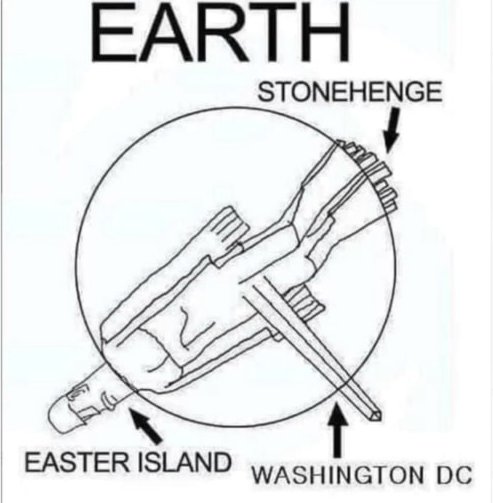-
Content count
4,406 -
Joined
-
Last visited
-
Days Won
20
Posts posted by Michael Sternbach
-
-
13 hours ago, dwai said:At one level, yes. Will the body feel pain and trauma? Of course.
Pain and trauma are felt in your consciousness, though. Therefore, the role of the mind is crucial here.
To illustrate, it has been shown that wounded soldiers in sickbay who were going to be sent home were experiencing significantly less pain than those expecting to be sent back to the battle field after their recovery.
13 hours ago, dwai said:The biggest source of suffering is the mind.
Yes, and that's in line with my previous paragraph.
Meditation practice can surely help alleviate the sensation of pain. As you probably know, some yogic practitioners etc. can take this really far!
However, lacking that kind of practice, I doubt that severe trauma (or even just a tooth ache) would leave you so psychologically unaffected as your statements seem to suggest. That intense desire for the pain to stop, accompanied by impatience, fear, and despair, is too deeply rooted in our nature as physical creatures to be affected much by what is basically a philosophical outlook.
13 hours ago, dwai said:I think it was the Buddha who said (heard it from
swami Sarvapriyananda) — suffering in the world is like being struck by two arrows, consecutively.
Imagine you were struck by an arrow in your chest, and right after you were struck by another. The first arrow is likened to what the circumstances/world hits you with. The second arrow is your reaction to the first one, which is far worse, and amplifies the pain caused the first arrow manifold.
As long as the body exists, the effects of wear and tear, illness etc will affect it. But why must that turn into suffering?
Buddha also taught the concept of tathagata - that which has passed. We must let it go (ie give up resistance to change).
why does there need to be a conflation of desire/wants with need? It’s important to see the difference between the two. One needs food, water, shelter, clothing (as a human being ie). One doesn’t desire it — that’s a minimum viable thing for survival.
But you will desire those things once they haven't been available for a (relatively short) period of time! To such a degree, even, that you would find it exceedingly difficult to maintain your usual state of joy and love. It would be pretty much put on hold due to more pressing concerns.
13 hours ago, dwai said:So, completeness doesn’t mean the body won’t need sustenance, etc. To deny it that, is a deviation from the way of nature. Completeness does away with desire/wants.
did you mean “dessert”? 🤔
Would you desire a dessert?

-
 1
1
-
 2
2
-
-
-
2 hours ago, dwai said:if you’re stranded in the middle of the desert without food or water, what can you possibly do?
Find an oasis, or wait for it to rain. What is meant to happen, will happen.
Alright, but do you think your mind would still be filled with joy and love? (Serious question.)
QuoteReminds me of a question a skeptic asked a nondualist teacher , “all this nonduality you keep spouting off about, what will you do if a mad elephant comes running down the street you’re standing in?”
The teacher replied, “why? Move out of the way.”
The skeptic gleefully crowed, “see…all your nonduality is of no use. You are scared of death the same as everyone else.”
The teacher replied, “ I’m a nondualist, not an idiot.”
On a serious note, the two-levels of reality are meant for that. The transactional level is meant for transactional things. The absolute is for spiritual things.
Oh, that's a remarkable answer! So, in your view, there are two levels of reality after all! With the absolute view only being applicable to a limited range of experience, strictly speaking.
So how does this relate to what you said earlier:
QuoteNondual “contentment” isn’t a choice. It is not an optional thing where you go, “now that I’ve got nondual contentment, let me go get discontented again, so I can identify with emotions or thoughts or the body”.
Nondual completeness is more apropos a term. And when something is complete, there is no room for desire. People desire something because there is a lack (perceived) of something (which they try to fulfill with things).
QuoteThat doesn’t mean that one cannot have the absolute truth inform their actions on the transactional level.
Okay, that resonates with me.
 Quote
QuoteYou know, there’s an old Sanskrit saying - “langhanam param aushadham” (fasting is the most powerful medicine).
Hah! I was afraid you were going to say something like that.
Sorry, Dwai, we're back to the desert...

-
 1
1
-
-
2 hours ago, Apech said:Yes
you can understand the consciousness of a star by consulting your inner wisdom. Especially if you view the cosmos as comprised of essences and not dead matter.
You may get an inkling that way.
But can an ant understand the mind of a human? For that matter, can a cat do this?

In order to fully comprehend the consciousness of a star, you would have to be one yourself, IMO.
-
3 hours ago, Bindi said:How do you know what the inner self is suggesting? Also how do you know what level that suggestion is coming from?
There's the catch. Nothing comes with neat labels in the psyche.
 It's a question of personal experience, I am afraid.
It's a question of personal experience, I am afraid.
That being said, meditation helps. Which is learning to temporarily silence the chatter in our mind.
Another clue: Practise paying attention to your very first thought regarding something. Before the analyzing mind takes control.
3 hours ago, Bindi said:I’m not so sure we do have free will when it comes to ‘commands’ from the higher self, I have experienced it as a force as I posted above, which I literally cannot go against no matter how much I want to, and I have tried because it hasn’t aligned with my conscious choice. I do have free will to follow along with subconscious knowledge and wisdom or choose not to do so, but I am not equating higher self with the subconscious.
Neither do I. However, from the conscious self's perspective, all that lives outside its realm is simply in the dark...
Therefore, surfacing subconscious and superconscious information can be difficult to distinguish between sometimes. Again, it's a learning process.
Compulsive states are more characteristic of subconscious than of superconscious influences, though.
3 hours ago, Bindi said:I suspect I cannot be my higher self, my completion lies in how perfectly I can enact my higher self’s will.
That sounds like you are modelling your higher self as something existing outside of yourself. I prefer to call it my inner self.
-
8 hours ago, liminal_luke said:I haven't spent a lot of time in the presence of immortals and other awakened beings.
What???!!!
 You're saying this after all this time you spent on this forum?!
8 hours ago, liminal_luke said:
You're saying this after all this time you spent on this forum?!
8 hours ago, liminal_luke said:In my mind their activity/inactivity is without odor, though it would not be surprising to detect a faint fragrance of cherry blossom or aloeswood in their vicinity. Burning rubber? Maybe, who knows.
Sulfur fumes if you were to visit my alchemical lab.
 8 hours ago, liminal_luke said:
8 hours ago, liminal_luke said:If I had to name two things well outside my wheelhouse, I'd say nondualism and race car driving.
-
 1
1
-
-
21 hours ago, dwai said:Nondual “contentment” isn’t a choice. It is not an optional thing where you go, “now that I’ve got nondual contentment, let me go get discontented again, so I can identify with emotions or thoughts or the body”.
Nondual completeness is more apropos a term. And when something is complete, there is no room for desire. People desire something because there is a lack (perceived) of something (which they try to fulfill with things).
But what if you were stranded in the middle of a desert, without food or water?
Don't you think you could be nondually complete all you want, your desire would get the better of you?
Actually, I think you wouldn't even need to go anywhere for making this instructive experience. Better try it out at home first, with a full fridge in reach (just in case)... For starters.
21 hours ago, dwai said:Yes that’s what happens. Whatever comes, comes, and whatever goes, goes. There is no “attachment” or “aversion”.
That is a valid position imho. Those who can’t go beyond that, will come back again (and again) until they do.
-
 1
1
-
-
On 9.5.2022 at 5:47 PM, stirling said:Depends on who you ask:
https://en.wikipedia.org/wiki/Ātman_(Hinduism)
IMHO for Atman to be labeled correctly (and I have no doubt that it is) it would have to be non-dual as all phantom "things" are, ultimately. There is therefore nothing to perceive as something as separate. Atman simply IS... is simply BEINGNESS... is simply "perceiving" phenomena and understanding it as not separate.
And yet perceive them it does - although not as separate from itself (its self).
Maybe Atman could even be said to be perception. The All Seeing Eye, as it were.
How could there be awareness without perception? How could there be consciousness without either?
On 9.5.2022 at 5:47 PM, stirling said:Having enlightened experience from the witness perspective (the last duality?) IS a common weigh station on the journey, but can also dissolve. This is the deeper understanding amongst these other possible explanations in my experience.
You can play comparative religion here, there is only one way to understand this quandary and that is having the complete understanding.
What does 'the complete understanding' signify - in an infinite Universe?
Can you understand the consciousness of a star?
In my opinion, "playing comparative religion" is a good place to start.
-
On 9.5.2022 at 4:27 PM, Apech said:subject = subject + predicate
(pause to reflect and object)
I feel that current (on this thread) definitions of Atman (brahman) are abstract. By this I mean they objectify the Subject and then attempt to get close to it. They define it in terms of the extinction of what it is not - thought, feelings, perceptions, matter and so on. They mistake, in my opinion, the subject which is Atman for the process which is yoga (yogas citta vritti nirodha - that is 'union arises from the evaporation of mind disturbance') - which I accept as it is basic to what we are about.
The Atman (breath, self) ... spirit? is all. Let's start there. the Atman could be described as an infinite continuum of consciousness, because being conscious arises because of consciousness, the Atman has no parts it is continuous and unbroken (no gaps) and there is nothing other than it (infinite). The Atman as 'self' is the ultimate subject. There is no other subject, it is as it is of itself independent of any causes or conditions. The predicate is everything that can be said about the Atman, which ultimately, because it is infinite is every possible name/form which exists, has existed, or has the potential to exist. An infinite dictionary of terms.
So imagine the infinite continuum of consciousness in which there are an infinity of points of reference. Each acts as an observing self. Each self looks out at the infinity of the Atman and sees an infinite display of energy and forms.
And this is how Atman/Brahman - the ultimate subject - becomes its own object. For there exists no other, outside its own infinity.
So it needs this infinity of points of reference - each acting as an observing self - to fully see (understand) itself. It needs this myriad of individual entities - on all levels of evolution and planes of existence -, each presenting it with its unique angle.
All that is, has been, or can be.
On 9.5.2022 at 4:27 PM, Apech said:Then forgetting its own nature falls into seeing these forms as 'other than Atman' and 'other than self'. So the sky becomes mere sky, earth mere earth, rock just a rock and a tree simply a tree.
And by this divide, forgetting their divine nature...
On 9.5.2022 at 4:27 PM, Apech said:Then recalling its source says I must return to the Atman, which is not the things I see but something else, something transcendent and beyond them. And looking back to the Atman I shall let these appearances dissolve in my quest for the root of my nature which will wake me up from forgetting.
But another turns to that one and says 'nah. I am a tantric alchemist' ...' for me the subject = subject + predicate and the world is the the result of the agency of the self. For me the tree is a living tree and my resolve is to go through life and realise the unity of all and one in everything. So see you on the other side.'
See you on TDB!

-
 1
1
-
-
23 hours ago, Bindi said:I think agency is negated because full blown authentic agency is so hard to establish in the appropriate place in the chain of command between mundane self and higher self. I’m thinking only one or two people ever have actually established agency to carry out the higher self’s will, unlike nondual realisation it’s incredibly rare, but to attempt to realise agency is the authentic path. Nondual realisation without agency is less than half the story.
Perhaps we would have to clarify what exactly you mean by "full blown authentic agency" first. Basically, following the inner self's suggestions is not a difficult thing to do - even though the ego may find them challenging at times and prefer to ignore them. It is true that listening to that small voice within with consistence and confidence presupposes a degree of practice for most.
Furthermore, I don't think that there is actually "a chain of command between mundane self and higher self." It's more of a cooperative endeavour in which the "mundane self" is granted free will to either follow along with the "higher self's" knowledge and wisdom or choose not to do so.
Even though it would be in the "mundane self's" best interest to trust this inner guidance - doing its own thing is quite acceptable from the "higher self's" non-dualist view and understood as part of the former's learning process.
As seen from a certain perspective, the "higher self" is "the mundane self's" entelechy and telos - the state of perfection or, perhaps more appropriately, completion that it aspires to.
-
 1
1
-
-
On 9.5.2022 at 4:22 PM, dwai said:First of all, there is no freakin' Proto-Indo-European language -- it is an artificially created thing. It is an attempt to fit a flawed linguistic model of a Eurocentric worldview, hence the entire chain of etymological gymnastics is questionable.
The version I like is that root of Atman is from tma, the root of tamas (darkness/ignorance/inertia). Adding of "A" is the negation of Tamas, so Atman is that which eliminates tamas/darkness/ignorance and so on. Which fits pretty nicely into the Svaprakasha Svarupa (Self-Effulgent, Self-Form) of Atman.
Now adding a "B" to Atman turns it into Batman - which shows beyond the shadow of a doubt that it indeed has perception:
and agency:
Quod erat demonstrandum.

-
 8
8
-
 1
1
-
-
44 minutes ago, dwai said:Act and Wu Wei? Wu Wei is non-action, is it not? (And before y’all pounce on the word - I said non-action, not inaction).
Actually, it is neither. It's a kind of spontaneous action not guided by your ever discursive mind, but by something deeper.
I understand you're an advanced Taiji practitioner. Then you must know what I am talking about.

-
 5
5
-
-
Welcome back, Awaken, and please reconsider your decision not to offer any translations any longer.
Most of us will have to rely on Google translation anyway, but few of us have the time to translate every single one of your many posts. Since you always show your original Chinese version anyway, those who can read it can always do so, of course. But for those who can't, your posts will lose some of their relevance now.
-
11 hours ago, dwai said:No. Perception is the domain of the mind.
10 hours ago, stirling said:I'm not Dwai, obviously but I think it is worth dialoguing: There is nothing to perceive something else. Being is perceiving.
This must be incorrect. Atman is synonymously the monad - the individual's innermost core. It mirrors All That Is. Therefore it must have perception. (The All Seeing Eye, the Witness.)
And the act of reflection indicates that it has agency as well. The active and the passive.
-
 1
1
-
-
Dwai,
Would you agree that Atman has perception?
-
6 hours ago, dwai said:When the Buddha was on the way to Nirvana, Mara is said to have visited him and tried to incentivize him to quit by offering things or by trying to scare him.
A similar process can be seen in the conversation between Nachiketa and Lord Yama in the katha Upanishad, where Yama offers wealth, a very long life, all the pleasures of this realm and higher realms (deva realm), and so on. But young nachiketa’s resolve to find the secret of “immortality” was unshaken, as all those other things would either cease to be, or cease to give pleasure/joy/happiness after a while.
This diamond body/rainbow body thing is very interesting for sure, when I meet someone with this capability, I would love to ask them questions about their motivations

Well, since achieving spiritual immortality is the purpose of attaining the diamond body (or rainbow body), the latter may actually have been right up Nachiteka's alley.

-
 1
1
-
-
Personally, I think that alchemy, TCM, and Daoism in general all have their roots in a far older body of wisdom and knowledge; the 'ancient sages' that are mentioned with reverence in some Daoist texts!
In a much later time, observations and experiments were conducted in these and related fields, trying to regain the old knowledge based on extant fragments. This didn't always end well, however, as evidenced by those "elixir poisonings" mentioned above...

A parallel development can be observed in the occident too, where bits and pieces of most ancient alchemical and other knowledge were being expanded on with varying degrees of success. There too, lack of context and general scientific knowledge sometimes resulted in certain... accidents.
-
 1
1
-
 1
1
-
-
1 hour ago, Apech said:My view is different to this. I view removing obstacles and so on to be one step (purification) in an alchemical (or others may say tantric) process. This process involves spirit/substance and leads to a state of being which is both illuminated and infinitely adaptive to any circumstance or environment. In other words the ability to assimilate experience and to respond appropriately is maximised. Most of this work occurs at the level of subtle body which is why it is key.
In what way is your view different to what part of what I presented?
-
 1
1
-
-
13 hours ago, Apech said:Spirit is a term in Western systems and does not really come up in dharmic systems unless you count prana of course.
Besides prana or chi, and pertaining to a different level, shen (as relevant to Chan/Zen and some other Eastern traditions) can be translated as spirit.
-
 1
1
-
-
15 hours ago, schroedingerscat said:Great discussion! Two questions, if I may...
1) What role does 'will' or 'volition' play here? So first 'gnosis' happens without volition, but later on it would be possible via (individual ?) volition to focus on / switch between the nondual reality or the dual one?
I think that's a fair asessment.
Just like in Kuòān Shīyuǎn's series of poems/images known as Ten Bulls, after having attained the state of enlightenment, the sage returns to the 'relative world' and attends to its needs and concerns.
Quote2) How would you say must the word 'experience' under these circumstances be then defined? Perceptions usually appear via the senses (eyes, ears, nose, skin etc.). But this is beyond senses or perceptions. What is it in us that 'experiences' without sensory organs? Qualia - on a science level? (You might call it Atman or the Source of possibilities?)
I would call it 'inner senses'.
QuoteEdit: one more question... - what does development of 'subtle channels' etc. have to do with any of this? Why then, if realization of this and integration into life is (so to speak) the goal of non-dualists ... why is every other
system oriented toward 'energetics'?
It's just that different systems employ different models and methods. But as they all work with the same conglomerate of physical/psychological/spiritual elements known as 'human being', there are countless overlaps between them. Often, a particular system can be looked at in terms of another and sometimes even be combined with it. It goes without saying that many traditionalists detest that kind of approach, though; in general, cultivation systems are advertised on the basis of exclusivity, not commonalities!
However, practical experience transgresses such conceptual boundaries sometimes. For example, when I started practising zazen, I experienced various energetic phenomena not usually accounted for by Zen teachers/texts (with a few exceptions). It was not until later that I discovered that working with energy flows is central to certain other systems.
Quoteand one more: where does spirit come into the equation?
Spirit is the carrier of consciousness. Where there is consciousness, there is spirit as well.
QuoteP.S: Sorry if I seem lost, I probably am.
I do like a lot of all of your posts, but forgot to hit the like button. Much appreciated.
-
 2
2
-
-
14 hours ago, forestofemptiness said:I think it is this re-orientation that is important and key to non-dual paths. Typically, the assumption is that we have to gain, or arrange, or somehow add on. Whereas in non-dual traditions, the orientation is not about gaining, but about removing hindrances and ignorance. I think the key points are well summarized in the DKR checklist @dwai posted earlier.
Which is why these paths typically spend a great deal of time going over the defects of gaining, adding, seeking elsewhere, etc. No matter how much subtle body or energy work one does, anything added or gained will eventually be lost.
Removing hindrances is inevitably linked to subtle body and energy work, though, whether or not this is being acknowledged or focussed on in a particular system.
On the other hand, there are various traditions that aim at building an astral vehicle or diamond body etc., so an interesting (apparent) dichotomy exists between those different approaches.
-
 1
1
-
 1
1
-
-
13 hours ago, stirling said:... I would say that both would available to focus on at any time. Sort of like looking at a separate tree but being aware in your widened gaze that the entire forest is also present at the same time. Not an either or, but seeing that duality is always and persistently non-dual.
Yes, that resonates with me. Keeping the bigger picture in view, while nonetheless highlighting a particular aspect of it.
Everything exists or happens for a reason and is 'redeemed', ultimately, yet dealing with the challenges of a dualistic world requires adopting more of a 'partial' view sometimes.
-
 2
2
-
-
Well, reading the header, I first thought the OP wishes to discuss what a world in which people generally accept and live according to Daoist principles would look like.
-
Bindi,
A Zen master once said that we should be able to switch back and forth between the relative view and the absolute view at will.
-
 2
2
-
 1
1
-
 1
1
-
 1
1
-






Differences between dualism and non-dualism
in General Discussion
Posted
It's everywhere and nowhere, dear Old3Blob!